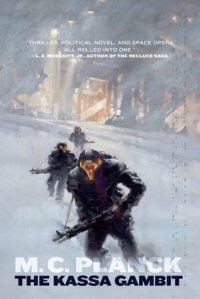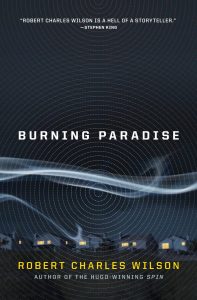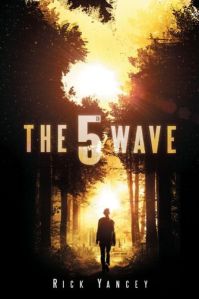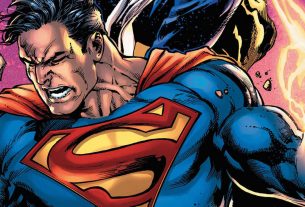One thing I’ll say for humans: we think pretty highly of ourselves. Over the past few months I’ve read several books involving aliens—aliens taking over the Earth, aliens encountered in faraway places (maybe we’re the aliens in that case?), aliens that look nothing like us, aliens that look just like us. Usually they have vastly superior technology, but somehow we manage to fend them off. Except in those rare cases when they manage to take over the planet … at which point we still manage to fight them off. And by “we,” I usually mean kids. Kids fight them off.
Okay, so not all of that is universally true, but let’s take a look at a few alien stories. There are some comic books, a couple of kids’ books, and some for adults. (Note: I’ll try to avoid big spoilers, but a few are inevitable.)
Let’s start with the kids’ books:
 1. You Can’t Have My Planet, But Take My Brother, Please – James Mihaley
1. You Can’t Have My Planet, But Take My Brother, Please – James Mihaley
Giles has a big problem: his older brother. Yeah, sure, an alien realtor has shown up to sell Earth to some new tenants because humans have broken their lease agreement by really messing up the place, and Giles has to prove that humans are capable of changing their ways by cleaning up Manhattan in 24 hours. But even with the planet at stake, Giles just isn’t sure he wants his smart, talented, annoying older brother on his team.
The aliens in You Can’t Have My Planet are pretty goofy—mostly they look and act something like humans, although there is a droid that looks like a parking meter. They do have some remarkable technology, but mostly what they’re using to take over the planet is, well, lawyers and realtors. And despite the fact that it’s up to kids (using some borrowed tech) to prove that they’re capable of being decent citizens of the galaxy, Giles and his friends manage to stave off this hostile takeover. Or forced eviction.
Biggest challenge faced: keeping sibling rivalry from endangering all of humanity.
 2. The Planet Thieves – Dan Krokos
2. The Planet Thieves – Dan Krokos
I mentioned The Planet Thieves before when talking about death in fiction, but I didn’t really get into the plot. It’s another middle-grade book, this time set in a far future where humanity has conquered space. They’ve been at war with an alien race known as the Tremist for sixty years, and little is known about them. They’ve never been seen outside of their armor, which looks a little bit like high-tech knight’s armor—so you know at least that the Tremist are, more or less, human-shaped.
Mason Stark is a thirteen-year-old cadet on the SS Egypt, heading on a routine voyage to log some space time. But (as you may expect) it is far from routine, because a Tremist ship shows up and attacks. Pretty soon most of the adults are captured or out of commission, and it’s up to Mason and his classmates to take back the ship and rescue the survivors. The book is definitely setting up a series, and there are some interesting twists that observant readers will probably see coming. Mostly it’s a fun, action-filled, sci-fi story.
Biggest challenge faced: The Rhadgasts, a Tremist bogeyman that sounds like a cyber-Dementor.
 3. Alien Invasion & Other Inconveniences – Brian Yansky
3. Alien Invasion & Other Inconveniences – Brian Yansky
Moving on to Young Adult books, here’s one that is an odd mix of stereotypical alien stories and some unexpected twists. Unfortunately, the biggest twist is the premise, which you get as soon as the book starts: the aliens win and conquer the Earth. In ten seconds. There are no epic battles, no heroic last stands—most of humanity just falls asleep and never wakes up. The small percentage that were spared are called “product” by the little green men—it turns out that the Sanginians are looking for a new planet to manage, plus a new source of slave labor.
The stars of Alien Invasions & Other Inconveniences are (of course) teenagers. Jesse learns that the people who weren’t killed instantly were those who could hear the aliens’ telepathic commands. But over time, his own telepathic abilities start to develop, and he works with a few other teenagers to start a rebellion. It’s hard to imagine how a tiny group will manage to save the entire planet, but I guess Yansky is just getting started: the second book, Homicidal Aliens & Other Disappointments, was released this fall. Alien Invasions is a mix of humor and devastation and—let’s be honest here—sometimes predictable behavior. Not terribly deep, but a fun read nonetheless.
Biggest challenge faced: Lord Vertenemous’ overbearing father, who will never be satisfied with his son no matter how many planets he invades.
What intrigued me most about The 5th Wave was the way the alien invasion took place—in a way, it’s a little bit like Alien Invasions (above), in that humans didn’t stand a chance. But it’s a little more specific in the details. (Minor spoilers ahead!) The first wave was a massive EMP blast that knocked out electrical systems across the planet. The next was kinetic bombs: giant metal rods dropped onto fault lines from space, causing earthquakes and tsunamis that wipe out major coastal cities. After several waves of attacks, nobody has actually seen the aliens themselves—just the big mothership hovering there.
It seems like Yancey took special care in creating an alien invasion that was not like your typical Hollywood movie, but once it’s revealed that the aliens look just like us, the story is back into more familiar territory. It’s still a good yarn, though: Yancey does a good job of conveying the sense of paranoia and fear in a world where you can’t trust anyone—and yet there’s no way for humanity to survive without working together.
The story centers on Cass, a teenage girl who has survived the first four waves. She’s managed to turn herself into a wilderness survivalist, not afraid to kill aliens when she meets them. She refuses to rest until she can be reunited with her little brother Sammy. This being a YA novel, there’s romance involved (a love triangle, in fact) and sometimes the stories focus on these two boys, too. Although the overall story arc is predictable—a little band of humans overcomes all odds to defeat an alien race (or a good number of them, at least) that has technology far more advanced than our own—there were a lot of little surprises throughout, and it was a fun read, and worth suspending my disbelief for a few hundred pages.
(There were some weird overlaps between this and another book down the list, but I’ll save that for the spoiler-iffic section at the end.)
Biggest challenge faced: Love makes you do stupid things.
5. Tune – Derek Kirk Kim and Les McClaine
Andy Go is a bit of a layabout—he dropped out of art school but can’t get a job and still lives with his parents. So of course he’s the perfect candidate when some folks from a parallel dimension come looking for exhibits for their zoo. All he has to do is be himself, and he’ll get free room and board, plus dental. Tune certainly isn’t your typical alien invasion story—in fact, the first volume is mostly just about Andy’s inability to accomplish anything of value. It’s also one of the few books where—so far—the aliens are winning, and the puny humans don’t triumph despite overwhelming odds. On the other hand, Andy’s zoo life is pretty cushy, as long as you don’t mind being stared at. (Quick note: despite surface appearances, this graphic novel series isn’t for younger kids; it includes strong language and some innuendo, though no actual explicit nudity.)
Tune is pretty funny, though much of the humor centers around what a loser Andy usually is. But there are also some thoughtful moments, too, when Andy considers what it means to be separated from Earth: from his family, his friends, and the girl he’s been crushing on for years. The first book is mostly about Andy’s life on Earth leading up to his new “job,” and the second starts digging into what his life is like as an exhibit. I’m curious to see where the story goes from here.
Biggest challenge faced: Job-hunting with an unfinished degree in illustration.
 6. The Kassa Gambit – M.C. Planck
6. The Kassa Gambit – M.C. Planck
And now for a few in the adult fiction category. The Kassa Gambit, for once, doesn’t take place on Earth—it’s set hundreds of years after humanity left Earth. We’ve spread throughout the universe with the help of “node-space” (like hyperspace) but despite colonizing countless planets, we still haven’t encountered any other sentient life. Until now (you hear the movie-trailer announcer voice intone).
Kassa, a small farming planet, is devastated by an attack, and two people respond to the distress call: Prudence Falling, sort of a female Mal Reynolds who flies a souped-up freighter, and Kyle Daspar, a police officer who’s actually an undercover double agent working to bring down the League. The two of them discover an alien spaceship crash-landed on Kassa, which raises a bunch of difficult questions.
A lot of the story focuses on the back-and-forth between Pru and Kyle: both of them are very suspicious, and Kyle in particular believes that Pru must be a League agent planted there for some nefarious purposes. Yes, there’s this imminent threat to humanity, but Planck sometimes seems more interested in how to make Pru and Kyle’s inevitable hook-up a surprise. (Hint: it’s not a surprise.) But despite the somewhat fumbling romantic subplot, the story behind the alien attack is pretty interesting, and Planck manages to make the political maneuvering between Kyle and the League rather fascinating.
Biggest challenge faced (by you, the reader): the cliched dialogue.
 7. Earth Unaware: The First Formic War – Orson Scott Card and Aaron Johnston
7. Earth Unaware: The First Formic War – Orson Scott Card and Aaron Johnston
I suppose it’s impossible to write about Earth Unaware without first talking about Orson Scott Card. I’m torn. I loved Ender’s Game (and the rest of the Ender Wiggins series) when I first read them about a decade ago, and I read several of the subsequent Ender’s Shadow series when that came out later. But then in recent years Card has been getting more attention for his political views than his stories, to the point where my decision of whether to watch the Ender’s Game movie was based more on my opinions of Card than on whether I’d heard it was a good movie or not. (In the end, my indecision became a decision, and I missed it anyway.) It seems telling that all of the gushing quotes on the back cover are for Card’s earlier books, as if they couldn’t get anyone to provide a blurb ahead of time for this one.
All that’s to say: I’m wary of promoting Earth Unaware, because every copy sold puts money in Card’s pockets, and I’m not sure that’s a great thing. But, as a story that fits into the Ender universe, it’s one that I’ve been waiting to hear. I also never know, in cases like this, how much writing is done by either author. Obviously Card has top billing, but it does seem like Johnston put in a lot of work fleshing out this backstory, first for Marvel’s comics series, and then in this series of novels.
So then: Earth Unaware is the first book about the First Formic War, when humans first encounter the “buggers” that are the enemy in Ender’s Game. It begins when a small asteroid mining family out in the Kuiper Belt notices something moving toward our solar system at incredible speeds. Complicating things is the involvement of Lem Jukes, who happens to be out in the area testing out a new gravity laser that should make mining even more profitable for Juke Limited. Into this conflict between the big corporation and the small family business comes a perplexing spaceship filled with bug-like aliens. It’s quickly obvious that none of the miners will be able to stop it—their only hope is to get word to Earth before the ship arrives. It’s interesting to get this part of the story, explaining a little more about Earth’s first encounter with the Formics.
One thing I appreciated about this story was the way that, although there are some extremely close calls, in general the book isn’t filled with people beating impossible odds. Instead, many of the characters risk their lives—and then lose them. Some of them are people you’ve gotten to know, ones that you expected would still be around at the end of the book.
This is just the beginning, of course. Earth Unaware was released in 2012, and Earth Afire came out this summer, but I haven’t read that one. I haven’t decided yet whether to seek it out or not—I felt conflicted nearly the whole time I was enjoying the first story.
Biggest challenge faced: Does the author’s non-fiction eclipse his fiction?
 8. Burning Paradise – Robert Charles Wilson
8. Burning Paradise – Robert Charles Wilson
I haven’t actually read any of Wilson’s previous award-winning books, but after reading Burning Paradise I’m curious. The book takes place in 2014, but it’s not exactly our world. In this alternate history, there hasn’t been a major war since World War I. Sure, life isn’t perfect, but for the most part humans are prospering, and technology is advancing—as it has ever since the discovery of the radiosphere, a layer of the atmosphere that propagates radio signals and greatly simplified worldwide communication.
But despite appearances, all is not well. A small network of scientists discovered that the radiosphere is actually an alien hypercolony—not exactly sentient, but definitely alive. It has been manipulating telecommunications and directing the course of human society … to what end, nobody is sure. We’re about to find out.
Although Burning Paradise does have some aliens-that-look-like-us in it, the hypercolony is nonetheless quite different from most other aliens I’ve encountered in fiction. It does have some amazing abilities, but it’s also more like a bee or ant hivemind than some race of beings with superior technology, and therefore interactions with it have this off-kilter feel to them. Wilson does an excellent job explaining how the hypercolony works without resorting to (too many) infodumps, and it’s pretty fascinating.
Side note: Coincidentally, this book also centers on a teenage girl named Cassie who’s caring for her little brother, facing similar trust issues in a world where people may not be what they seem. (See The 5th Wave above.)
Overall, I enjoyed reading this one, particularly for Wilson’s imaginative hypercolony, which is probably the best of the aliens in this group of books.
Biggest challenge faced: Should you fight an alien that seems to make your world better?
Spoiler Section
In this section I talk about some odd consilience between a couple of the books (and the movie The World’s End). If you don’t want to find out these details, then stop reading here and skip to the “Closing Thoughts” below!
I already mentioned the odd similarities between The 5th Wave and Burning Paradise—a girl named Cass or Cassie who’s on the run from aliens who look like humans. In one, she has a little brother and she’s trying to rescue him from the aliens. In the other, the little brother is with her and she’s trying to protect him. What I didn’t mention is that in both books, Cass(ie) falls in love with a boy who’s on the run with her. And in both cases—surprise, surprise!—the boy turns out to be not what he seemed. Yep. So my advice to you: if your name is Cass and the world is under attack by aliens in human guise, you might want to do a little more investigation before you start dating that boy.
The other similarity I found was between Burning Paradise and the sci-fi comedy The World’s End. In the movie, Gary King (Simon Pegg) and his pals return to their old hometown in an attempt to complete a pub crawl, but they soon find that most of the townspeople have been replaced with robots. What you find out at the end is that these robots are being controlled by The Network, an alien being (or race?) who have decided that Earth is the least civilized in the galaxy and needs a shove in the right direction. Gary’s argument is that we have every right to be jerks, to make our own mistakes, and that we don’t need the help of some aliens to set us on the right track.
This is actually much like what happens in Burning Paradise. Ethan Iverson, Cassie’s uncle, gets an explanation from the hypercolony: the reason they guide humans in a particular direction is so that technology will advance to the point that their simulacra can build the device that will allow the hypercolony to reproduce, traveling to another planet to repeat the process. If Ethan destroys the hypercolony, then not only will radio communications fail, but humanity will be left to its own, belligerent devices. Ethan, like Gary, decides that humanity deserves to make its own mistakes.
In both cases, this decision leads to a world that’s falling apart, one that requires massive amounts of rebuilding because so much of what we depend on came from the aliens. But it does seem like the sort of thing we’d decide to do, doesn’t it? We don’t care if aliens have the key to world peace—we’d rather figure it out (or fail to) on our own.
Closing Thoughts
Like I said at the beginning, despite the fact that all of the aliens in these books have incredible powers or advanced technology, humans still manage to get the best of them (except in the Tune series, so far). Granted, they’re not all resounding victories—sometimes it’s just a small band of humans that manages to overcome one bunch of aliens—but they’re pretty significant victories nonetheless.
The only alien book I can think of in recent memory that did not involve the humans overcoming incredible odds to defeat the aliens was Constellation Games by Leonard Richardson. Though in that case, it’s because the aliens weren’t out to destroy us. They were actually peaceful and wanted to help our planet, but our sci-fi-primed paranoia wouldn’t let us trust them.
I also note that this list, like my last Stack Overflow column, is completely male-dominated. I did scan all of my current review copies to see if I had any other books that were about aliens, but I don’t have as much sci-fi and this is apparently it. I would guess that there are alien stories written by women, but I haven’t been sent any. (Two that I can think of that aren’t recent are The Sparrow by Maria Doria Russell, which I read years ago, and Beth Revis’ Across the Universe trilogy, which can only loosely be called an alien story.) So, readers, help me make a list! If you know of some great alien books written by women, please tell me in the comments, especially if they’ve been published recently, and I’ll see if I can do another post later on. Do women approach aliens differently than men? Let’s find out.
Disclosure: GeekDad received review copies of these books.







Hi! I enjoyed this, linked from your review of The Infinite Sea by Rick Yancy.
As for alien SF by women, consider classic SF writer Zenna Henderson, in particular her nonPeople short stories, and Stephenie Meyer’s The Host, a twist on Invasion of the Body Snatchers from the alien POV.
Thanks for the recommendations! I have to admit that the premise of The Host sounded interesting at first, but then because of the association with Twilight I never ended up reading it.
Yes, there’s a lot of Twilight bashing, without understanding the subterranean layers, symbolism, psychology, alchemical structuring, etc., of the saga. Too many went into the story prejudicially and superficially. See John Granger’s book Spotlight to explore these things; he’s written extensively on Harry Potter. The Host is (also with the subterranean layers) is my favorite and I love the bodysnatcher twist. Meyer isn’t an impeccable stylist, but she really knows how to spin a yarn and write fully realized characters.
I finished The Infinite Sea yesterday and that ending was something. I agree with you about the poetic voice and lack of distinction between character voices, a common problem. Marie Lu’s Champion trilogy is the opposite. Very well done on voicing.